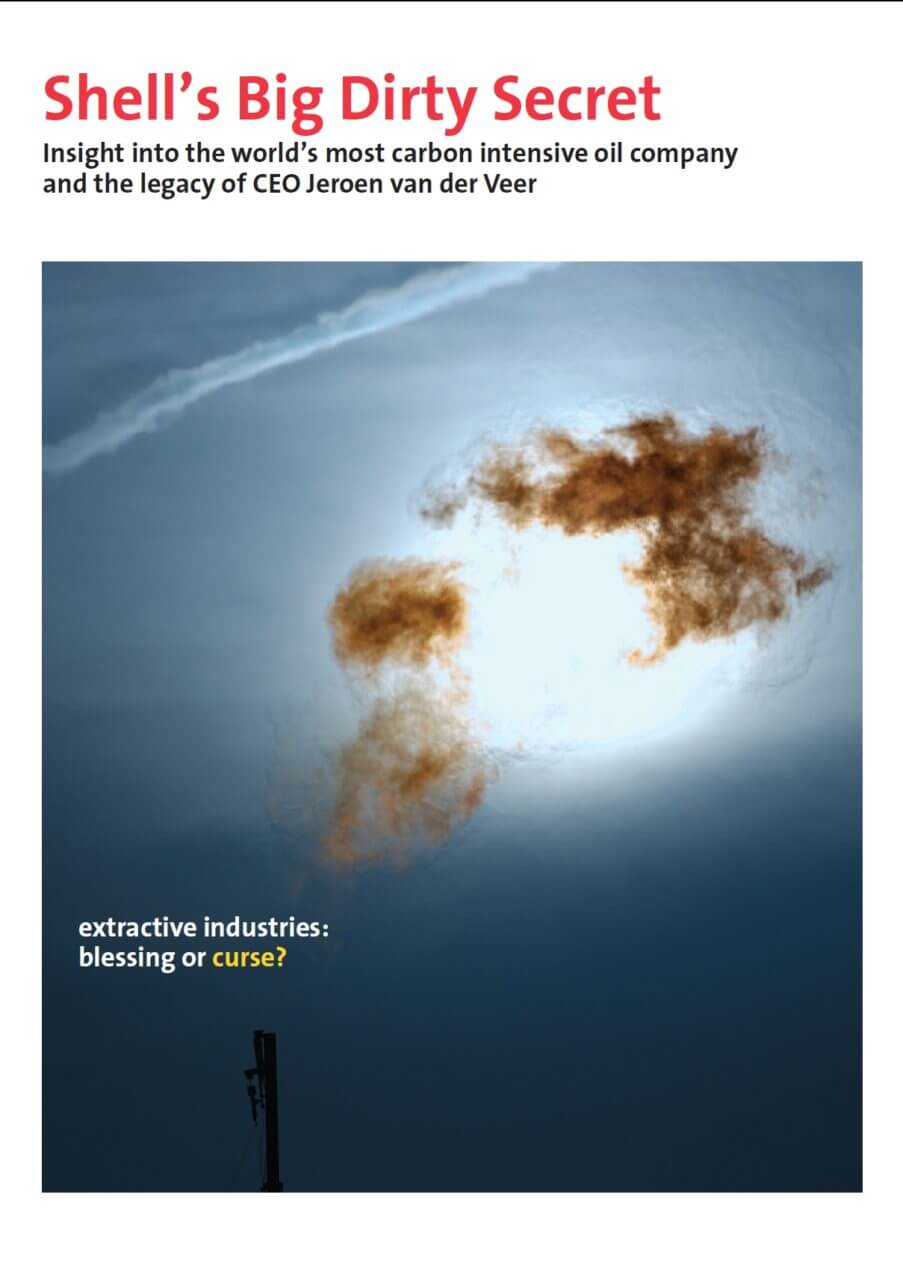
This report rates the carbon intensivity of the top international oil companies, revealing that Shell is the most carbon intensive oil company in the world based on its total resources.
Research for the report was conducted by Platform, Greenpeace UK, Oil Change International and Friends of the Earth.
Download the report (pdf) or read online below.
Key conclusions are:
- Shell holds more carbon in its resources, per barrel of future oil equivalent, than any other major international oil company. Shell is therefore the world’s most carbon intensive oil company;
- The average carbon intensity of each barrel of oil and gas Shell produces is set to rise dramatically, increasing 85 per cent on today’s figure;
- This sharp increase is caused by Shell’s move into oil sands, its reliance on liquefied natural gas (LNG) and its continued gas flaring in Nigeria;
- Shell continues to expand investments in oil sands and oil shale, relying on the dirtiest technologies to establish itself as a leader in the industry;
- Shell has stopped its investments in renewables, except for biofuels, which pose a whole new set of environmental problems;
- Internal documents obtained in the discovery process of Wiwa v. Shell reveal that although Shell could have ended gas flaring in the early ‘90’s, it decided it was more profitable not to;
- Shell continues to flare gas in Nigeria at levels which, according to its own figures, are only 12% less than those of 1999 after accounting for the reductions due to community unrest;
- Because of all of the above, Shell is more vulnerable to carbon pricing and subject to greater carbon risk than its peers.
- Therefore, Shell is leading industry lobby efforts in Washington, Brussels, and the United Nations Framework Convention on Climate Change to weaken and neuter legislation and regulation to tackle climate change